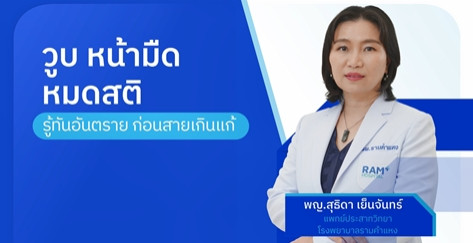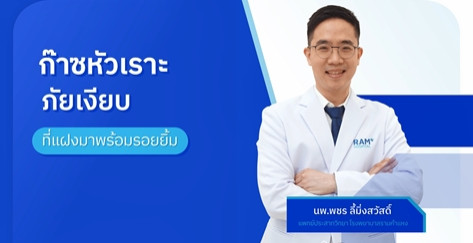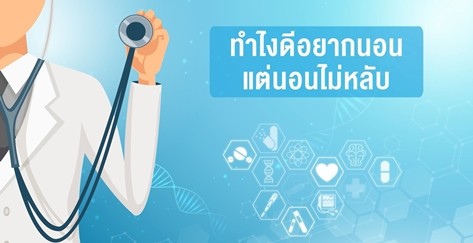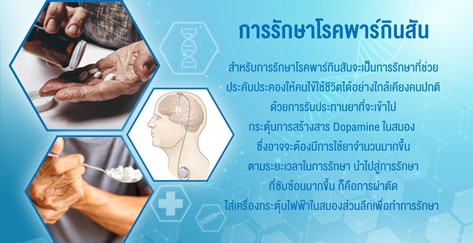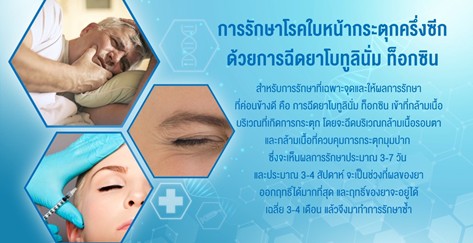Neurology Center
Centers and Programs

Our neurology center provides comprehensive diagnosis, treatment, and rehabilitation for disorders of the nervous system, brain, and spinal cord. Our expert neurologists and neurosurgeons use innovative technology to detect and address abnormalities, preventing potential disability or death, and ensuring the highest quality care.
The Neurology Center, Ramkhamhaeng Hospital
1. Neuro Medicine
1.1. Acute Paralysis Center
This center offers specialized treatment for strokes, which can result in symptoms like paresis or paralysis. Additionally, our Stroke Fast Track system provides prompt support to stroke patients who experience symptoms within 4.5 hours. Our team of specialist doctors are well-equipped to provide comprehensive care for these conditions :
- Headaches
- Neurological disorders
- Strokes
- Diagnosis of carotid artery stenosis
- Stroke treatment for patients whose symptom onset is no longer than 4.5 hours: doctors may consider administering thrombolytic drugs to dissolve any blood clots in the arteries of the brain (provided the patient has no contraindications to the use of these drugs). Alternatively, doctors may consider utilizing modern technology for treatment carried out by a medical specialist in intervention (interventionist).
- Hemorrhagic strokes: Patients who experience a hemorrhagic stroke will be under the care of specialists in brain surgery. In some cases, surgery may be necessary to treat the condition.
- Headache
Our Additional Services
In addition to specialized clinics, the Neurology Center, Ramkhamhaeng Hospital also provides a range of other services for patients suffering from other brain and nervous system diseases, such as :
- Headaches
- Hemispherical spasm (treated through botulinum toxin injections)
- Vertigo
- Neuropathy such as numbness in the hands and feet
- Neuropathic pains, such as burning, shooting, and stabbing sensations
- Memory disorders (Dementia/Alzheimer's)
- Epilepsy or seizures
- Movement disorders and Parkinson's
- Muscular dystrophy and muscle inflammation
- Sleep disorders
- Sleep test
- Navigator to assist with targeted surgical treatment
- Operating microscope
- Endoscope
- Ultrasonic surgical aspirator to treat tumors
- High-speed cranial drill
2. Neurosurgery
The Neurology Center at Ramkhamhaeng Hospital is composed of a team of highly skilled neurosurgeons who specialize in treating and advising patients with neurological disorders of the brain and spinal cord that require surgical intervention. The hospital is equipped with advanced surgical technology including microscopes, endoscopes, and navigators. Our care and treatment includes conditions such as :
- Head injuries
- Brain tumors
- Strokes
- Cerebral aneurysm
- Arteriovenous malformation: AVM
- Spinal cord tumors
- Microsurgery for the brain, cervical vertebrae, spinal cord, and spinal discs
- Trigeminal neuralgia
- Hemifacial spasm
- Degenerative disc diseases, causing nerve compression in the neck or back
- Normal pressure hydrocephalus surgery in elderly patients
- Catheter-based interventions for acute ischaemic stroke
- Endoscopic pituitary surgery
- Carpal Tunnel Syndrome
- Spinal stenosis
- Spondylolisthesis
Diagnostic and treatment equipment
The Neurology Center at Ramkhamhaeng Hospital provides a range of equipment used in the diagnosis and treatment of brain and nervous system diseases. These include advanced technologies for diagnosing and treating disorders of the nervous system, brain, and spinal cord, such as :
- CT Scan
- MRI and fMRI
- Transcranial Magnetic Stimulation (TMS)
- Portable Electroencephalography for guided injection (Portable EMG)
- Carotid Duplex Ultrasounds
- Transcranial Doppler Ultrasounds (TCD)
- Electroencephalography (EEG)
- 24-hour EEG monitoring
- Electromyography study (EMG)
- Nerve conduction study (NCS)
- Cerebral angiography
- Sleep test
- Navigator to assist with targeted surgical treatment
- Operating microscope
- Endoscope
- Ultrasonic surgical aspirator to treat tumors
- High-speed cranial drill
Customer Testimonial
Khun Wanida Joraka

Former Depression Patient Treated with TMS Technology
"I feel so much better; I want to eat, and I can sleep. My mind isn't racing, and I don't have headaches. It's like my brain chemistry is back to normal, allowing me to work and take care of my mother and do housework as usual."
My symptoms started in November 2018. I couldn't handle it anymore: my hands trembled, my heart pounded, I couldn't sleep or eat. I went to a clinic, where the doctor prescribed up to 15 sleeping pills, but even after taking 5, I still couldn't sleep. My family told me to stop taking them. Later, I started feeling scared, unable to drive because my heart would race and I'd sweat. From January 2019, I couldn't drive. I had severe headaches, shoulder and neck pain, body aches, and felt like my head would explode. I didn't want to live and avoided everyone because I felt useless, unable to care for my mother after leaving my job to do so. This feeling made me not want to exist.
My mother was already a patient of Dr. Ariya. I asked her about my condition, and she suggested trying TMS (Transcranial Magnetic Stimulation), hoping it would help. So, around late July, I saw Dr. Ariya. I was ill with a severe fever and headache, so I was admitted to the hospital for 3-4 days. On the second day, I received TMS treatment and felt better immediately; I could eat and sleep. On the third day, I had another session and improved further. The doctor also mentioned prescribing a stimulant.
Customer Testimonial
Khun Neerada Preeprem

Former Brain Tumor Patient's Journey
"The word 'tumor' felt so distant, especially being so young. I thought, 'Do I have a tumor?'" said Ms. Neerada Preeprem, a 24-year-old former brain tumor patient. At her age, the odds of developing a tumor are only 1 in 100.
After experiencing frequent dizziness, visiting multiple hospitals, and finding no relief from medication, Ms. Preeprem developed sharp, intermittent headaches for 5-6 consecutive days, rendering her unable to sleep or work. She sought treatment at Ramkhamhaeng Hospital.
Initially, I received medication for a suspected migraine, as other tests showed no abnormalities, and it was attributed to my lifestyle. However, my condition didn't improve, so I returned to the doctor. This time, I was sent for an MRI, which revealed a tumor on my pituitary gland."
Learning this was a shock, and many thoughts flooded her mind. The doctor explained the treatment options: surgery or medication. Ms. Preeprem initially favored medication due to her fear of surgery, specifically the thought of brain penetration and the daunting image of an operating room with orange lights and blood-stained green drapes. However, medication meant lifelong treatment and only shrinking the tumor, not removing it. She requested time to decide and consult her family. The doctor respected her decision, understanding her fear.
Ultimately, she chose surgery. The doctor clarified that it wasn't the invasive procedure she imagined; it was endoscopic surgery through the nose, leaving only a small incision. Before the surgery, the doctor conducted thorough examinations, which, while extensive, reassured her of their meticulous care. The operating room environment was not as intimidating as she had pictured; the medical staff were smiling and attentive. After anesthesia, she woke up feeling no pain and was pleasantly surprised; her fear of surgery was gone. She recovered in just two nights and was discharged. Post-surgery care involved minor attention to the nasal incision, which healed completely in less than 15 days.
Many questioned her choice of hospital. She confidently stated, "This hospital has excellent equipment and skilled doctors, ensuring no waiting for treatment—some things can't wait, right? The service here is also exceptional; the doctors, nurses, and even the staff took great care of me. If I pay a little more and get such good results—a new life—I'm willing to pay."
Customer Testimonial
Khun Jakkrit Tuamsopa

Former Stroke Patient's Account
"While traveling, I experienced constant dizziness that progressively worsened. Upon arrival at the hospital, I first saw an ENT specialist who checked for fluid balance in my ears; the results were normal. Fortunately, the doctor suspected something more and referred me to a neurologist. The neurologist determined my blood pressure was elevated, and I had a slight facial droop, leading to an immediate MRI. The scan revealed a cerebrovascular issue requiring urgent treatment. The doctor explained the treatment, and once I agreed, they administered a clot-dissolving drug immediately. Within six hours, my dizziness subsided. I'm incredibly fortunate that I arrived in time and that the doctors provided such attentive care; otherwise, I would have been paralyzed."
Early Detection is Key
Police Lieutenant Colonel Jakkrit's case is exceptionally fortunate because he recognized his symptoms and sought prompt medical attention. If the brain is deprived of blood for more than three hours, the chances of a full recovery significantly decrease. Therefore, everyone must monitor their symptoms and those of their loved ones.
Do not ignore symptoms such as sudden weakness or numbness on one side of the body, slurred speech, loss of balance, decreased vision, or even temporary dizziness, tingling in the hands, or weakness that resolves on its own. These could be signs of a transient ischemic attack (TIA), which often precedes a full-blown stroke. If you experience any of these symptoms, seek immediate medical attention.
Customer Testimonial
Khun Wanida Joraka

Former Depression Patient Treated with TMS Technology
"I feel so much better; I want to eat, and I can sleep. My mind isn't racing, and I don't have headaches. It's like my brain chemistry is back to normal, allowing me to work and take care of my mother and do housework as usual."
My symptoms started in November 2018. I couldn't handle it anymore: my hands trembled, my heart pounded, I couldn't sleep or eat. I went to a clinic, where the doctor prescribed up to 15 sleeping pills, but even after taking 5, I still couldn't sleep. My family told me to stop taking them. Later, I started feeling scared, unable to drive because my heart would race and I'd sweat. From January 2019, I couldn't drive. I had severe headaches, shoulder and neck pain, body aches, and felt like my head would explode. I didn't want to live and avoided everyone because I felt useless, unable to care for my mother after leaving my job to do so. This feeling made me not want to exist.
My mother was already a patient of Dr. Ariya. I asked her about my condition, and she suggested trying TMS (Transcranial Magnetic Stimulation), hoping it would help. So, around late July, I saw Dr. Ariya. I was ill with a severe fever and headache, so I was admitted to the hospital for 3-4 days. On the second day, I received TMS treatment and felt better immediately; I could eat and sleep. On the third day, I had another session and improved further. The doctor also mentioned prescribing a stimulant.
Customer Testimonial
Khun Neerada Preeprem

Former Brain Tumor Patient's Journey
"The word 'tumor' felt so distant, especially being so young. I thought, 'Do I have a tumor?'" said Ms. Neerada Preeprem, a 24-year-old former brain tumor patient. At her age, the odds of developing a tumor are only 1 in 100.
After experiencing frequent dizziness, visiting multiple hospitals, and finding no relief from medication, Ms. Preeprem developed sharp, intermittent headaches for 5-6 consecutive days, rendering her unable to sleep or work. She sought treatment at Ramkhamhaeng Hospital.
Initially, I received medication for a suspected migraine, as other tests showed no abnormalities, and it was attributed to my lifestyle. However, my condition didn't improve, so I returned to the doctor. This time, I was sent for an MRI, which revealed a tumor on my pituitary gland."
Learning this was a shock, and many thoughts flooded her mind. The doctor explained the treatment options: surgery or medication. Ms. Preeprem initially favored medication due to her fear of surgery, specifically the thought of brain penetration and the daunting image of an operating room with orange lights and blood-stained green drapes. However, medication meant lifelong treatment and only shrinking the tumor, not removing it. She requested time to decide and consult her family. The doctor respected her decision, understanding her fear.
Ultimately, she chose surgery. The doctor clarified that it wasn't the invasive procedure she imagined; it was endoscopic surgery through the nose, leaving only a small incision. Before the surgery, the doctor conducted thorough examinations, which, while extensive, reassured her of their meticulous care. The operating room environment was not as intimidating as she had pictured; the medical staff were smiling and attentive. After anesthesia, she woke up feeling no pain and was pleasantly surprised; her fear of surgery was gone. She recovered in just two nights and was discharged. Post-surgery care involved minor attention to the nasal incision, which healed completely in less than 15 days.
Many questioned her choice of hospital. She confidently stated, "This hospital has excellent equipment and skilled doctors, ensuring no waiting for treatment—some things can't wait, right? The service here is also exceptional; the doctors, nurses, and even the staff took great care of me. If I pay a little more and get such good results—a new life—I'm willing to pay."
Customer Testimonial
Khun Jakkrit Tuamsopa

Former Stroke Patient's Account
"While traveling, I experienced constant dizziness that progressively worsened. Upon arrival at the hospital, I first saw an ENT specialist who checked for fluid balance in my ears; the results were normal. Fortunately, the doctor suspected something more and referred me to a neurologist. The neurologist determined my blood pressure was elevated, and I had a slight facial droop, leading to an immediate MRI. The scan revealed a cerebrovascular issue requiring urgent treatment. The doctor explained the treatment, and once I agreed, they administered a clot-dissolving drug immediately. Within six hours, my dizziness subsided. I'm incredibly fortunate that I arrived in time and that the doctors provided such attentive care; otherwise, I would have been paralyzed."
Early Detection is Key
Police Lieutenant Colonel Jakkrit's case is exceptionally fortunate because he recognized his symptoms and sought prompt medical attention. If the brain is deprived of blood for more than three hours, the chances of a full recovery significantly decrease. Therefore, everyone must monitor their symptoms and those of their loved ones.
Do not ignore symptoms such as sudden weakness or numbness on one side of the body, slurred speech, loss of balance, decreased vision, or even temporary dizziness, tingling in the hands, or weakness that resolves on its own. These could be signs of a transient ischemic attack (TIA), which often precedes a full-blown stroke. If you experience any of these symptoms, seek immediate medical attention.





